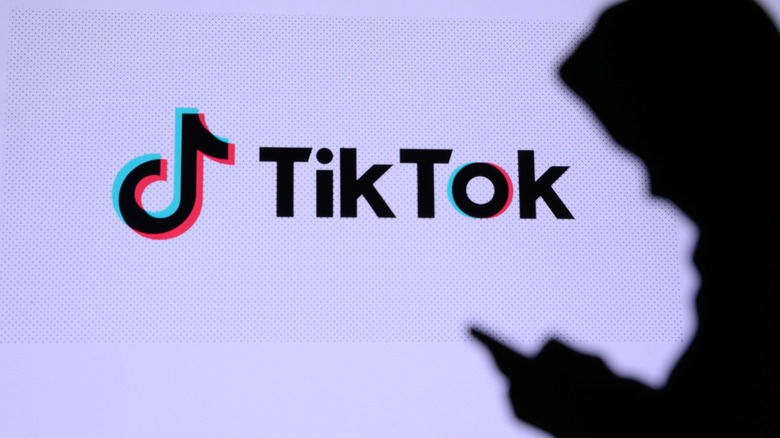The Social Media App You Should Probably Stop Using On Android
Some social media apps aren't exactly as innocuous as they seem, and the threat is only more prevalent if you're on Android. TikTok has grown into one of the most popular social media platforms, with over 1 billion users visiting the site on a monthly basis (via TikTok). However, the social media app — which is owned by Chinese tech giant ByteDance — has also been the subject of scrutiny by the U.S. government in the past. In 2019, the U.S. Army deemed TikTok a "cyber threat," banning the popular mobile app on the phones of its soldiers in the process, according to People. The situation didn't get any better in 2020, as a member of the Federal Communications Commission (FCC) urged Google and Apple's executives to remove the app altogether from their respective stores (via The Guardian).
While the company did admit that its China-based employees can have access to the TikTok data of American users, it explained that it would first require approval from its U.S.-based security team to be able to do so. That didn't stop the Committee on Foreign Investment in the United States (CFIUS) from putting TikTok under review for the sake of national security, though. In the meantime, TikTok has rolled out various security improvements, including ones that seek to protect its younger audience via an update in 2021. The question is, does this make TikTokers immune to exploitation, or are users merely delaying a possible data leak in the future?
Why should Android users be more worried about TikTok?
Urging ByteDance to divest in TikTok is no easy feat, as it might lead to some undesired results, according to CSIS. One solution, however, is to simply uninstall the app on Android. Why just Android? Well, this has to do with its ecosystem being less unified than Apple's stricter iOS. Anti-virus software firm Norton explained that Android's open-source approach to app developers can make the operating system more vulnerable, whereas Apple's more enclosed iOS ecosystem makes it harder to exploit. In addition, its larger demographic of users also makes it a bigger target for cyber threats, especially since not all Android phones are treated equally in terms of receiving updates.
These sentiments are also echoed by cyber-security provider Kaspersky, which claims that Android has a "questionable security reputation." When it comes to security updates, Google's Pixel phones are usually the first to receive them, while more obscure Android handsets usually end up with outdated software a lot faster. Android's lack of app and hardware regulation only contributes to its overall weakness in combating data-mining threats as well. This makes the possibility of data theft or leaks from apps such as TikTok more likely for Android users compared to the alternative. Although it's uncertain when or if such a scenario will occur through TikTok (the company is trying to ensure its user base that's not the case), it's always better to err on the side of caution.

